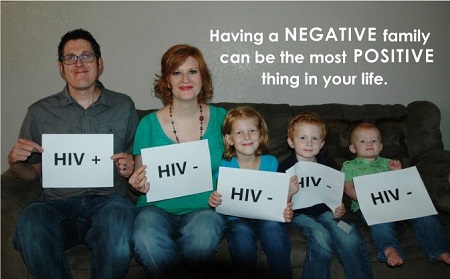Marry a person living with AIDS or HIV positive
Previously, a person who was infected with HIV or AIDS was considered the end of the world, but with the advancement of science and disease control, everything has changed for people living with AIDS, although there is no effective treatment to eradicate the virus, but with The use of manufactured drugs can have a long life with health and prevent people from getting the disease.
Today, people with AIDS can use drugs to weaken the virus, block it, get married, and even have a healthy baby.
Today, AIDS has become a controllable disease and the methods of its transmission are scientifically known, and other people do not escape like before with people with AIDS unless they are in ignorance.
With the advancement of science, fortunately, the life expectancy of people living with AIDS has increased. Although it is preferable for people with AIDS to marry each other, if a healthy person happens to fall in love with a person with AIDS, he or she can consider appropriate methods and attend counseling classes with full awareness of the potential dangers he or she faces. And threatens his emotional partner and, by teaching him how to use hygienic methods, self-care, and proper contraception, consider marrying someone who has AIDS.
Sometimes the power of love overcomes the fear of illness, and a healthy person prefers to marry a person with AIDS and spend the rest of his or her life with him or her.

The difference between HIV positive and AIDS
HIV, or Human Immunodeficiency Virus, weakens the body’s immune system and causes the infected person’s body to show severe side effects against the entry of germs, viruses, and fungi.
HIV infection occurs in three stages and without proper treatment it gets worse over time and eventually overwhelms the immune system.
The virus destroys CD4 immune cells in the body, which progresses in stages, and in fact, AIDS (Acquired Immune Deficiency Syndrome) is the third and final stage of HIV progression in the body, in which the immune system is severely damaged and Weak immunity makes the patient extremely vulnerable to infections.
So a person can be HIV positive but not have AIDS. The progression of HIV to AIDS depends on a number of factors, including age, general health, genetics, health care, and the presence of other infections in the body.
Before the discovery of HIV drugs, half of those infected with the virus were infected with AIDS within 10 to 15 years, but after the discovery of HIV drugs, if a person takes the drugs accurately, they may never Do not get AIDS and live an almost normal life.
Anti-HIV drugs can minimize the progression of the virus in the body and weaken the immune system, and slow or stop the effects of the virus on the body.
Ways to prevent getting married to someone who has AIDS
The HIV virus is transmitted in three known ways:
- Unprotected sex
- Use a shared syringe
- Using devices that are stained with blood
In general, the HIV virus cannot penetrate healthy skin; only contact of an infected person’s blood and sexual fluids with infected skin or mucous membranes that are injured or scratched can transmit the virus.
You should know that the HIV virus is not transmitted through normal contact, for example, you do not get the disease by working or living with an HIV-positive patient or even using shared eating utensils, shared bathrooms and toilets.
Marrying a person with AIDS has its own risks, so you should take this path with full awareness and go to counseling sessions, take medication on time and use a condom during sex, and completely separate personal and hygiene items such as the shoulder. , Nail clippers, razors, toothbrushes and toothpaste, etc. can greatly reduce the risk factor.
AIDS does not enter the body through saliva or food unless you have an open sore in your mouth or on your lips and the blood or secretions of an infected person contaminate your food, which is very rare.
The possibility of transmitting AIDS through the bloodstream is greater than through sexual intercourse, but if the HIV virus enters the body through the blood, you have 24 golden hours to go to medical centers and take certain medications to prevent the disease.
If the condom breaks and comes in contact with the fluids secreted in the genitals of the infected person, you have 72 golden hours and you can prevent the infection and transmission of the disease by going to health centers immediately and taking medicine, and by consuming a period of 15-30 Fasting medicine, get rid of the virus from the body.
The chance of transmitting HIV through sexual intercourse is about 0.1-1% if there are no sores or scratches on the skin or vagina, but repeated sexual intercourse can greatly increase this risk.
Women are more likely to become infected with HIV than men. An HIV-infected mother will not transmit the disease to her baby if you are treated.
Despite challenges, an HIV diagnosis does not preclude dating, marrying, or having a family. The advent of highly active antiretroviral therapy transformed the HIV experience of illness restoring individuals’ ability to live normal lives managing HIV as a chronic illness.
The only way to tell if a person has HIV is through the HIV Antibody Test, which detects the presence of antibodies produced by the body in response to the HIV virus. It can take up to three months for antibodies to be developed.
